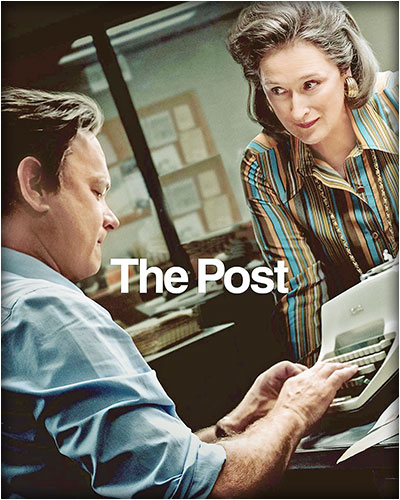What’s to watch on Netflix?
- 20 Apr - 26 Apr, 2024

The Post, written by Liz Hannah and Josh Singer, directed by Steven Spielberg, starts in a brief moment of calm in the middle of a war zone. It is 1966, and the soldiers get ready for their next forward position within the thick foliage of the Vietnam jungle. The camera moves with them, ping-ponging from one unknown face in a uniform to another, briefly picking up a typewriter and one particular soldier with a mangled, overlong haircut. Everything goes to hades soon.
The soldier with the hair, Daniel Ellsberg (Matthew Rhys), turns out to be a military analyst, who was on the ground to document the progress of the military activities for Secretary of the State Robert McNamara (Bruce Greenwood in overly oiled hair). What he found out would topple the government: a slew of bad decisions that led to millions of deaths, and then more bad decisions. Everyone knew the Vietnam was a misstep; what one didn’t know was how big of a misstep it was.
Ellsberg, morally roused by the truth, smuggles his official findings, remembered in history as the Pentagon Papers (over 4000 pages of facts) to a photocopying machine – in perhaps film-history’s most nerve-twitching photocopying moment – and leaks them to the New York Times, who publishes excerpts until an official injunction by the Attorney General and a judge stops them dead in tracks.
The film, however, is not about The Times’ journalistic triumph. That would have been far too simple and one-dimensional for Spielberg. The Post is about “The Washington Post”, which in those very dates was moving to a much bigger playing field by registering in the stock exchange.
The Post wasn’t even the first choice for the leak, so as the audience we are looking at history from the perspective of a newspaper that didn’t even call dibs on the story.
In Spielberg’s hands this story becomes a shrewd, powerful, multithreaded, gripping piece of entertainment that is part history lesson, part personal drama of the characters, part woman’s lib war-cry, and most importantly, a parallel to the current American government’s actions.
Tom Hanks and Meryl Streep play the editor and publisher of The Post, nailing down the personal quirks and fidgetiness I can only presume their real-life counterparts may have. The triumph, though, is chiefly Spielberg’s who weaves a narrative so fast and authoritative – in both technical and creative tilts – that it reminds one of the power of the government, the press and of that of the people.
Playing the film in an off-hand manner is a crafty divergence. For the longest time, one wonders why the film is called The Post, when most of the real action came from The Times – yet it pays off in spades. The Post is by far the best film in the Oscar line-up. Even if it wasn’t, it is still one of Spielberg’s best. •
COMMENTS